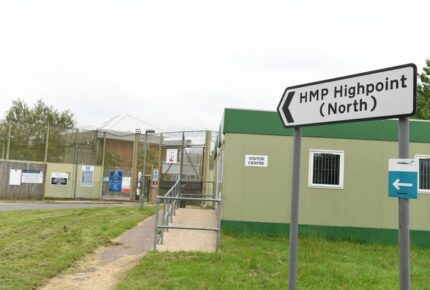

Are you facing a charge related to the offence of carbon credit fraud and wondering about the potential maximum sentence you might face if convicted? If so, you are not the first and you certainly won’t be the last. Concern about potential sentences is one of the most common queries clients present to their solicitors. While the sentence for carbon credit fraud can be serious, there are options a solicitor can pursue to potentially lessen the duration of any imprisonment, should it be imposed. In this article, we provide a brief overview of the offence of carbon credit fraud, examine the maximum sentence applicable, highlight key aspects from the sentencing guidelines, discuss how a solicitor can assist in reducing the sentence imposed, and offer guidance on where to seek further assistance.
What is the offence of carbon credit fraud?
The offence of carbon credit fraud in England pertains to the fraudulent manipulation or misrepresentation of carbon credits for financial gain. This typically involves the falsification of records, misreporting emissions data, or the sale of counterfeit carbon credits.
The primary legislation governing carbon credit fraud in England includes the Fraud Act 2006 and the Climate Change Act 2008. Additionally, other relevant regulations and directives at both the national and European Union levels may apply.
The elements of the offence of carbon credit fraud typically consist of:
- Fraudulent Intent: The individual or entity knowingly engages in deceptive practices related to carbon credits with the intention to deceive and gain financially.
- Misrepresentation: This involves providing false information, whether through forged documents, misleading statements, or other means, regarding the quantity, ownership, or validity of carbon credits.
- Financial Gain: The fraud is committed with the aim of obtaining financial benefit, either directly through the sale of fraudulent carbon credits or indirectly through the evasion of carbon trading regulations.
Examples of carbon credit fraud may include:
- Fabricating emission reduction data to generate illegitimate carbon credits for sale on the carbon market.
- Falsifying documentation to misrepresent the ownership or origin of carbon credits.
- Creating counterfeit carbon credits and selling them to unsuspecting buyers.
- Manipulating carbon offset projects to inflate claimed emissions reductions and thereby increase the number of carbon credits issued.
These examples illustrate the various forms that carbon credit fraud can take, each involving deceitful practices aimed at exploiting the carbon trading system for unlawful gain.
What is the maximum sentence for carbon credit fraud?
The maximum sentence for carbon credit fraud in England and Wales can vary depending on the specific circumstances of the case, including the amount of financial loss incurred and the level of deception involved. However, as per the Fraud Act 2006, individuals convicted of fraud offences under Section 1 of the Act can face a maximum sentence of up to 10 years’ imprisonment.
The Sentencing Council provides guidelines for fraud offences, including those related to financial crimes such as carbon credit fraud. While these guidelines offer a framework for judges and magistrates to determine appropriate sentences, they take into account factors such as the culpability of the offender, the harm caused, and any aggravating or mitigating factors present in the case.
For instance, if the carbon credit fraud involves a high level of sophistication, substantial financial loss, or exploitation of vulnerable victims, the court may impose a sentence at the higher end of the sentencing range. Conversely, if the offender demonstrates genuine remorse, cooperates with authorities, or has limited culpability, the sentence may be mitigated accordingly.
Each case is assessed on its individual merits, and the sentencing decision ultimately rests with the judge or magistrate presiding over the case. Therefore, while the maximum sentence provides an upper limit, the actual sentence imposed will depend on the specific circumstances and the discretion of the court.
What factors influence sentencing for carbon credit fraud?
When sentencing for carbon credit fraud, judges consider a range of factors to determine an appropriate sentence. These factors aim to ensure that the sentence reflects the seriousness of the offence and the culpability of the offender, while also taking into account any mitigating circumstances. The following are the main considerations typically taken into account:
- Culpability of the Offender: Judges assess the degree of the defendant’s culpability in committing the carbon credit fraud. This includes examining the level of planning, sophistication, and involvement in the fraudulent activity.
- Harm Caused: The extent of harm caused by the carbon credit fraud is a crucial factor. This encompasses both financial losses suffered by victims and wider societal impacts, such as damage to public confidence in environmental initiatives or the carbon trading system.
- Aggravating Factors: Certain factors may increase the seriousness of the offence and warrant a higher sentence. These may include:
- Deliberate targeting of vulnerable victims or communities
- Abuse of a position of trust or authority
- Prolonged or systematic fraudulent activity
- Attempts to conceal or cover up the fraud
- Previous convictions or a history of similar fraudulent conduct.
- Mitigating Factors: Conversely, mitigating factors may reduce the severity of the sentence. These can include:
- Genuine remorse and early guilty pleas.
- Cooperation with authorities, including providing information or assisting in the investigation.
- Demonstrated efforts to make restitution or mitigate the harm caused.
- Limited involvement in the offence, such as being coerced or influenced by others.
- Financial Gain: The financial benefit derived from the carbon credit fraud is also considered. This includes both the actual amount gained by the offender and any potential financial harm inflicted on victims or the wider economy.
- Impact on Victims: Judges assess the impact of the fraud on individual victims, businesses, or communities. This includes considering any emotional or psychological harm suffered as a result of the offence.
- Deterrence and Public Confidence: Sentencing aims to deter both the offender and others from engaging in similar fraudulent conduct. Judges may impose sentences that send a clear message about the seriousness of carbon credit fraud and reinforce public confidence in the justice system.
These factors, along with any specific circumstances of the case, inform the sentencing decision. While the Sentencing Council provides general guidance on sentencing principles, judges exercise discretion to tailor the sentence to the unique circumstances of each case, ensuring that it achieves the objectives of punishment, deterrence, and rehabilitation.
How can a solicitor help with reducing the sentence for carbon credit fraud?
Solicitors play important roles in helping to reduce the sentence for carbon credit fraud by providing expert legal guidance, strategic advice, and representation throughout the legal process. Here’s how a solicitor can assist:
- Case Preparation: Solicitors diligently gather evidence, interview witnesses, and construct a compelling case on behalf of their client. This may involve challenging the prosecution’s evidence, presenting mitigating factors, and advocating for a fair and proportionate sentence.
- Negotiation Skills: Solicitors are skilled negotiators who can engage with prosecutors to secure favourable outcomes for their clients. They may negotiate plea bargains or alternative resolutions that result in reduced charges or lenient sentencing recommendations.
- Sentencing Advocacy: During sentencing hearings, solicitors advocate on behalf of their clients, highlighting mitigating factors and presenting persuasive arguments for leniency. They may draw attention to the defendant’s remorse, cooperation with authorities, or efforts to make amends, thereby influencing the judge’s sentencing decision.
Choosing the right solicitor for assistance with carbon credit fraud charges is paramount. When selecting a solicitor, consider the following:
- Experience and Specialisation: Look for solicitors with specific experience in handling fraud cases, particularly those related to financial crimes such as carbon credit fraud. A solicitor with relevant expertise is better equipped to navigate the complexities of your case and achieve optimal outcomes.
- Track Record of Success: Research the solicitor’s track record and success rate in defending clients against fraud allegations. Positive testimonials, case results, and professional accolades can provide insight into their competence and effectiveness.
- Communication and Rapport: Choose a solicitor with whom you feel comfortable communicating openly and honestly. Effective communication and a strong attorney-client relationship are essential for collaboration and trust throughout the legal proceedings.
When first meeting with a solicitor for assistance with carbon credit fraud charges, you can expect an initial consultation to discuss your case in detail. During this meeting, the solicitor will:
- Listen attentively to your account of the events leading to the charges and ask relevant questions to clarify key details.
- Assess the strengths and weaknesses of your case, including potential defences and mitigating factors.
- Explain the legal process, potential outcomes, and available options for defending against the charges or mitigating the sentence.
- Provide honest and practical advice tailored to your specific circumstances, outlining the potential risks and benefits of different strategies.
- Discuss their approach to representing you, including their legal strategy, fee structure, and expectations for communication and collaboration.
Securing the advice of a specialist solicitor for assistance with carbon credit fraud charges can significantly improve your prospects for reducing the sentence and achieving a favourable outcome in your case.
Where to get further help
Worries about the potential sentence for carbon credit fraud can be overwhelming, and you likely have numerous pressing questions. For further assistance and advice regarding sentencing and other aspects concerning the offence of carbon credit fraud, reach out to the team at Stuart Miller Solicitors today.
OUR COMMITMENTS TO YOU:
-
Responsive
A legal expert will consult you within 24 hours of making an enquiry.
-
Empathetic
We will always treat you with trust, understanding and respect.
-
Specialised
Your case will be handled by an expert who specialises in your type of offence.
-
Proactive
We will take early action to end proceedings as soon as it is practically and legally possible to do so.
-
Engaged
You will be kept updated on your case at all times. We will provide a named contact available to answer your questions.
-
Caring
We understand this is a difficult and stressful time for you and your family. Our team will support you every step of the way.
-
Tenacious
We will never give up on your case. We fight tirelessly to get you the best possible outcome.

